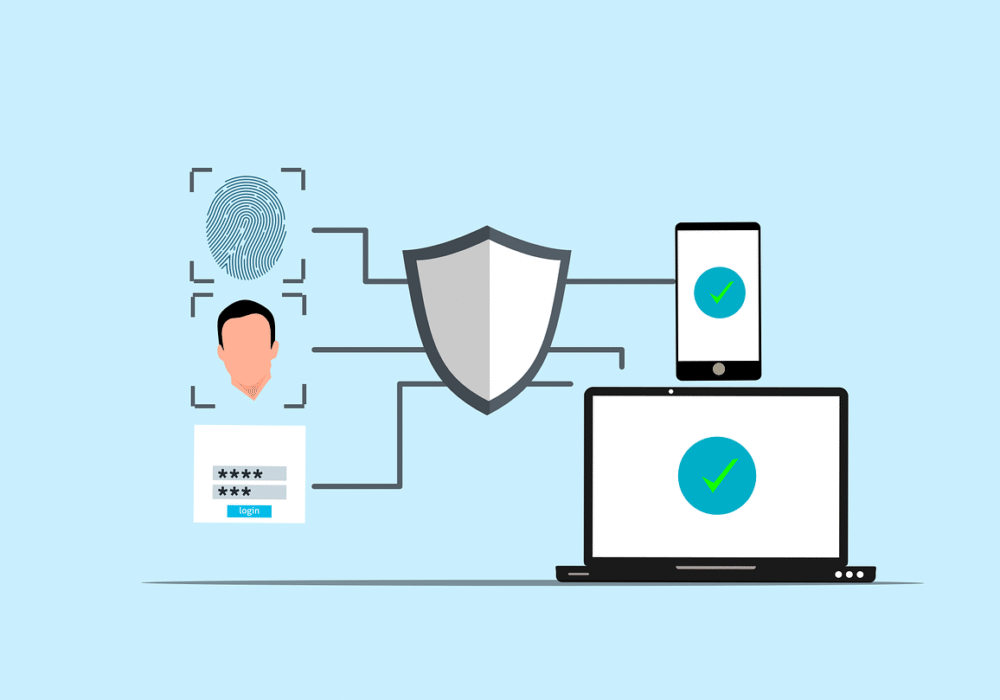In our technology-driven age, IT is one of the greatest growth levers available to businesses. Utilized strategically, IT can help businesses deliver a better service to their customers, while expending less time and resources in the process. IT can be the key to new revenue streams, allowing businesses to tap into new markets, and grow sustainably.
Harnessed correctly, IT can provide benefits to every stakeholder in a business: employees, owners, executives, customers, partners and suppliers. Failure to innovate however, can leave your business at a competitive disadvantage, leaving it struggling to compete against rivals that have integrated the latest solutions and technologies into their workflows. To stay ahead, you need to continuously review your IT posture, and make ongoing adjustments to align technology with your processes and business ambitions.
We know this isn’t always easy.
It can be hard to assess the areas where your IT falls short of modern standards, particularly if you don’t have the benefit of context. To help, this blog explores the areas where digital solutions can have the greatest impact in terms of value creation, and examines the solutions and technologies helping businesses achieve more using less time and resources. Let’s get started.
How Can Technology Create Value and Enhance Profitability?
Let’s start by defining the word ‘value.’ By value, we mean the ratio of effort expended vs the quality of outcome achieved. A high-value process is one that achieves an exceptional outcome for customers, while limiting resource expenditure to modest, sustainable levels. Create value therefore, and you engender a climate of maximum productivity, while simultaneously delivering a high-quality product or service to your customers.
Wherever you look in your business, it’s likely there are opportunities for technology to add value. Here are some of the areas where the best digital solutions can have the greatest positive impact:
Process Efficiency
Technology can be leveraged to simplify, structure and streamline business processes to improve efficiency. Business process automation (BPA) can be used to reduce the burden of repetitive tasks, and the likes of Enterprise Resource Planning (ERP) software can allow resources to be managed more intelligently and efficiently. Operational efficiency is achieved by optimising resource use, and by reducing the expenditure of the 2 greatest commodities in business: time and money. Other solutions that can be effective at improving operational efficiency include cloud software, task and project management software, Customer Relationship Management (CRM) systems and IT infrastructure upgrades that improve system performance.
Customer Satisfaction
Today’s customers expect a streamlined, consistent and personalised service from the businesses they interact with, and technology plays a significant part in delivering on these expectations. Customer relationship management (CRM) systems allow you to choreograph customer engagements across multiple channels and delivery a truly tailored experience. Through the ability to integrate with your customer engagement channels, customer-facing apps, web-based self-service portals and your marketing platform, CRMs ensure you’re able to provide high-quality service, and deliver marketing messages that resonate with customers, both new and old.
Strategic Decision-making
Business intelligence platforms enable businesses to collect, analyse and visualise the wealth of digital information they hold, facilitating better decision-making by harnessing the power of dormant data. Connect separate data stores, spot hidden data trends, forensically analyse raw data and create visual data models comprising charts, graphs, dashboards and diagrams; business intelligence tools enable organisations to do all this and much more. Armed with the relevant insights, decision-makers are empowered to better manage resources, lead effective sales strategies, pursue the best marketing techniques, save money, and boost customer satisfaction.
The Most Effective Value-adding Technologies
Countless digital solutions can be used to drive value creation in your business, from devices, networking hardware and connectivity solutions, to cloud services, advanced software programmes and emerging technologies like AI and machine learning.
Here, we’ve compiled a list of the key technology types businesses should explore for lower costs, improved efficiency and high customer satisfaction.
Devices and Physical Infrastructure
Keeping the physical aspects of your IT infrastructure modern and fully-maintained, ensures staff have access to responsive, secure and dependable technology. This translates to higher productivity and better outcomes for your business, and a more satisfying end user experience that your employees will take pleasure in. Review the age and performance of your hardware on a continuous basis to ensure components are performing optimally, including computers, laptops, servers, networking equipment and telephony infrastructure.
Software Programmes
Enterprise software can help you structure complex processes, streamline collaboration, help you serve your customers more effectively and deliver a better experience. Productivity platforms, CRM systems, project management tools, and media management platforms are just some of the systems available to help businesses tackle persistent workplace challenges.
The Cloud
The cloud provides access to virtualised computing resources on-demand, allowing businesses to rent computing power, platforms and software services on an affordable subscription basis. The cloud computing model enables businesses to deploy sophisticated IT capabilities without enduring the capital expenditure that comes with traditional IT projects. Plus, the remote-capable nature of the cloud means users can access resources from anywhere.
Business Intelligence and Data Analysis
Many digital tools exist to help organisations rationalise, visualise, and extract value from large stores of data. These include data warehouse solutions, Business Insight (BI) platforms, data analysis and reporting software, and data mining and machine learning technology. Such systems allow businesses to draw insights from data that might otherwise go unused, empowering better sales forecasting, improved resource management, enhanced customer outcomes, and helping to foresee future financial challenges.
Cyber Security
Modern cyber security tools can help businesses avert costly, and reputationally damaging data breaches, and help them towards satisfying their compliance obligations.
Modern intrusion detection and prevention systems (IDPS) continuously monitor network traffic and system activity, to detect and thwart malicious actors before they’re able to do damage.
Encryption provides protection to data both in-transit and at-rest, providing a shield against malicious interception via attacks like man-in-the-middle (MITM).
Modern anti-virus solutions that leverage vast threat libraries continuously scan devices for malicious threat signatures, taking swift action to isolate and destroy any harmful code detected.
By exploring the latest cyber security technologies, you give your business the best chance of evading a damaging cyber-attack.
Online Platforms and E-Commerce
E-commerce solutions and online platforms make it easy for retailers to maintain a strong online presence and deliver the immersive digital retail experience today’s customers expect. From content management systems (CMS) that can produce and manage websites and online content, to e-commerce tools that provide a fast-tracked way to establish a digital shop, online retail has never been more accessible and convenient.
Internet of Things (IoT)
Internet-of-things refers to devices that contain sensors, processing capabilities and connectivity which enables them to gather and exchange data over the internet. IoT capabilities are what is being referred to when technology companies say a device is ‘smart,’ i.e., a smart speaker or a smart appliance. In the workplace, IoT technology has boundless potential, from IoT devices that track the location of goods across supply chains, to patient monitoring devices in healthcare settings that inform staff of patient welfare issues. IoT can save businesses time by reducing the workloads of frontline staff, and make processes more efficient by using sensor-equipped devices in place of slow, manual procedures.
Automation
Automation refers to technologies that reduce or remove the requirement for human intervention in tasks or processes. By introducing automation in your workflows, you reduce the burden of menial tasks, and free staff up for activities that create more value. Automation can be introduced in a couple of key forms:
Robotic process automation (RPA) sees software applied to simple rule-based tasks that might otherwise require a employees to manually transfer data between segregated systems. RPA solutions allow businesses to connect and apply automation between systems that would otherwise be challenging to integrate.
Business process automation (BPA) applies the same basic principles as RPA, but over much broader systems and workflows. While RPA automates simple tasks, BPA takes an end-to-end approach, applying impactful automations across complex processes and workloads.
Human Resources Management Systems (HRMS)
HR workflows can be time-consuming without the right tools in place. Human resources management systems (HRMS) provide options for streamlining and automating tasks and processes across the department, from applicant tracking systems that simplify and automate recruitment, to human resource information systems which provide assistance with payroll, benefit management, managing employee data and performance monitoring.
Choosing Where to Deploy Technology to Add Value
To gain the greatest benefit from your technology investments you have to identify the areas where technology can add the most value in your business. Here are 2 techniques you can use for an effective digital transformation.
Carry Out a Business Process Analysis (BPA)
A business process analysis is a methodology for scrutinizing, evaluating and improving processes across an organization. A BPA analyses process data, including inputs and outputs, performance metrics and resource expenditure, to identify problematic processes that could benefit from optimisation. The results of a BPA allow you to prioritise processes and workflows that could benefit from technology-led enhancement, ensuring your digital investments deliver the greatest possible positive impact.
Focus on Processes that Directly Benefit Your Customers
Delivering a compelling product that satisfies the needs of your customers is vital to the viability of your operation. By gaining an understanding of the value your customers derive from your product, and how your solution meets their needs, you can focus improvements on the processes that deliver the most value for your customers. You’ll also be able to create new products, armed with knowledge of the main motivations of your customers.
The Jobs to Be Done (JTBD) methodology is a useful way to identify customer value points and motivations. JTBD will help you understand the circumstances, challenges and needs that lead customers to choose your solution, so that your able to enhance the processes that allow you to deliver value to them.
Another tool that serves a similar purpose is the ‘Value Proposition Canvas.’ It works by helping you visualise your typical customer profile, setting out the tasks and challenges they are trying to overcome, as well as the gains or benefits sought in the process. It then explains where and how your offering provides value to your customers, highlighting the ways it helps them complete tasks and gain the benefits they’re looking to obtain. As with JTBD, this will help you direct strategic focus towards the digital systems most fundamental to creating value for your customers, helping you to deliver an ever more competitive product.
Conclusion
We hope this article has helped you consider where and how digital technologies could be deployed to create value and improve the processes within your business. If you’re keen to make progress on your journey towards digital transformation, seek the support of a dedicated team of IT professionals who can help you create a technology strategy that features the best value-creating solutions on the market.
BCNS – Managed IT Support, Solutions and Consultancy for Devon Businesses
BCNS is a full-service IT provider, dedicated to bringing the best, tailored IT solutions to businesses across Devon. Our unrivalled knowledge and experience, combined with a commercially-aware approach to business technology, ensures your business will benefit from solutions that drive value and empower growth. From best-in-class cyber security solutions, to the cloud platforms and connectivity services you need to stay connected and productive, we’ll help you harness IT for strategic benefit across your business. Get in touch today for a friendly, no-obligation chat about your IT challenges. We’d love to hear from you.





